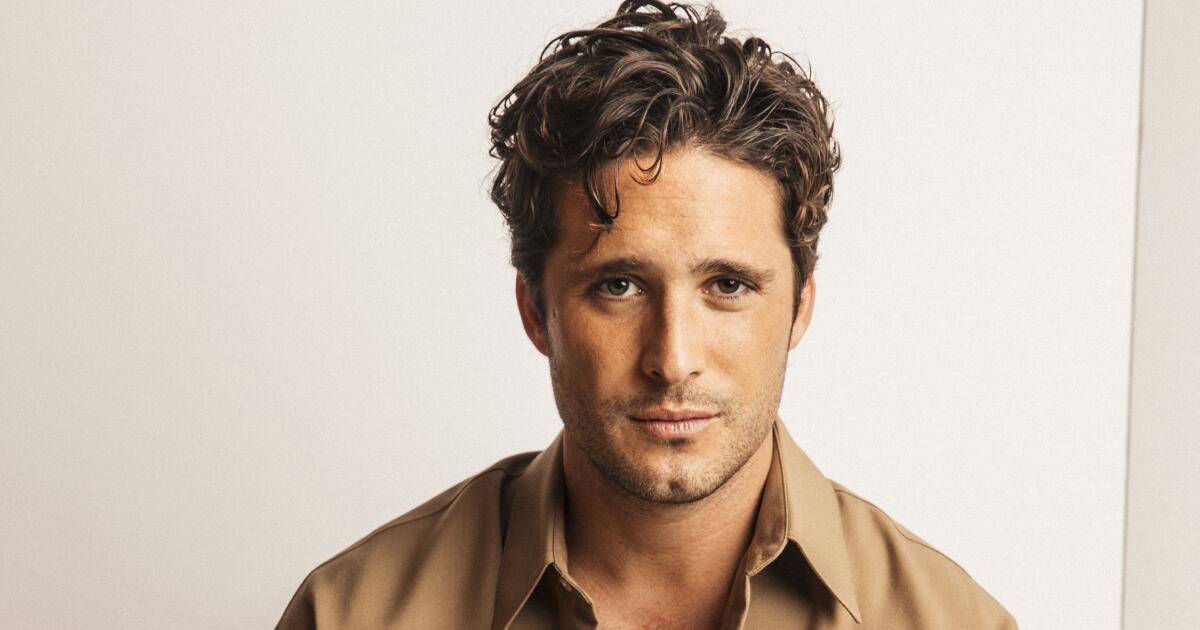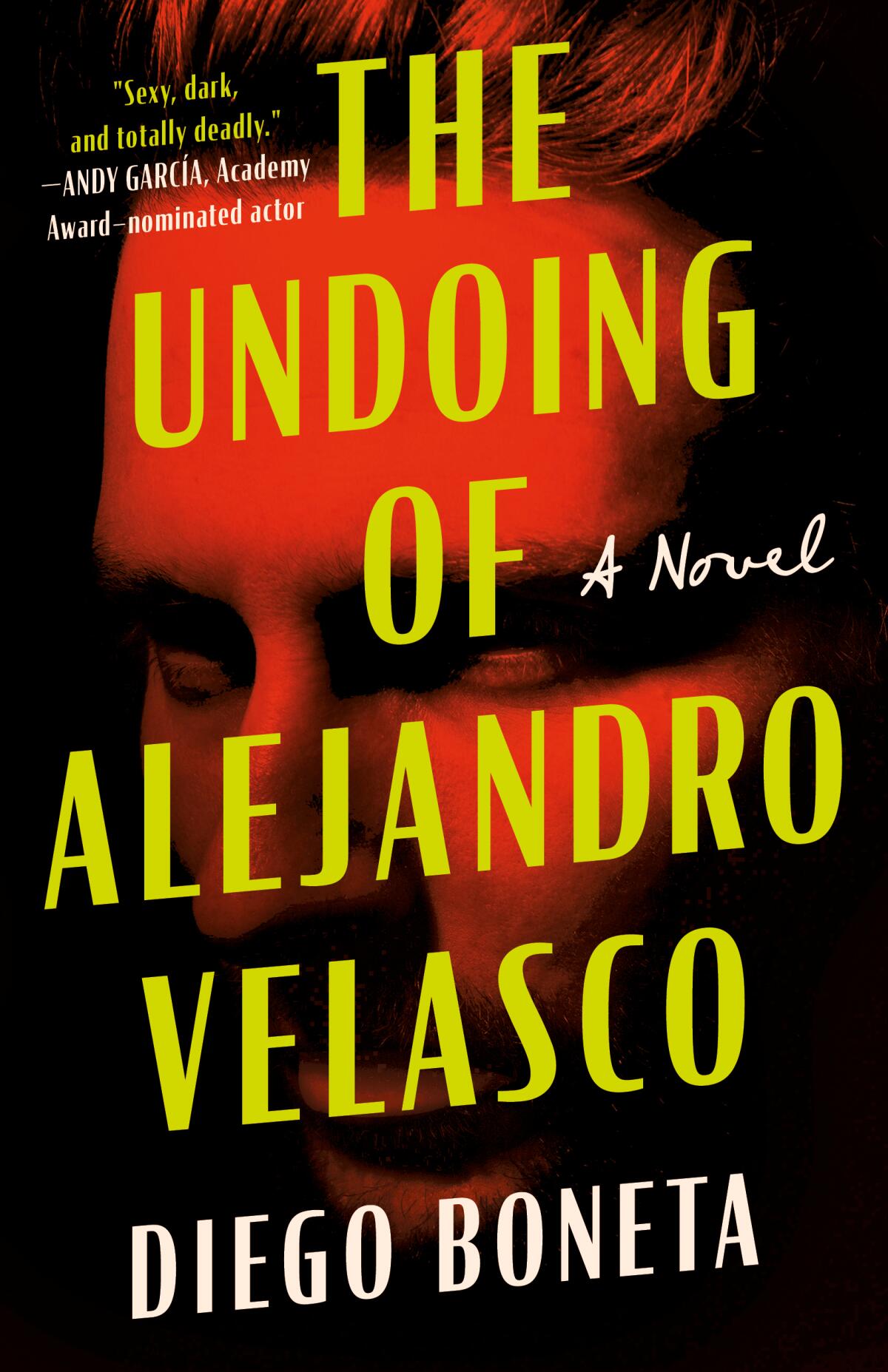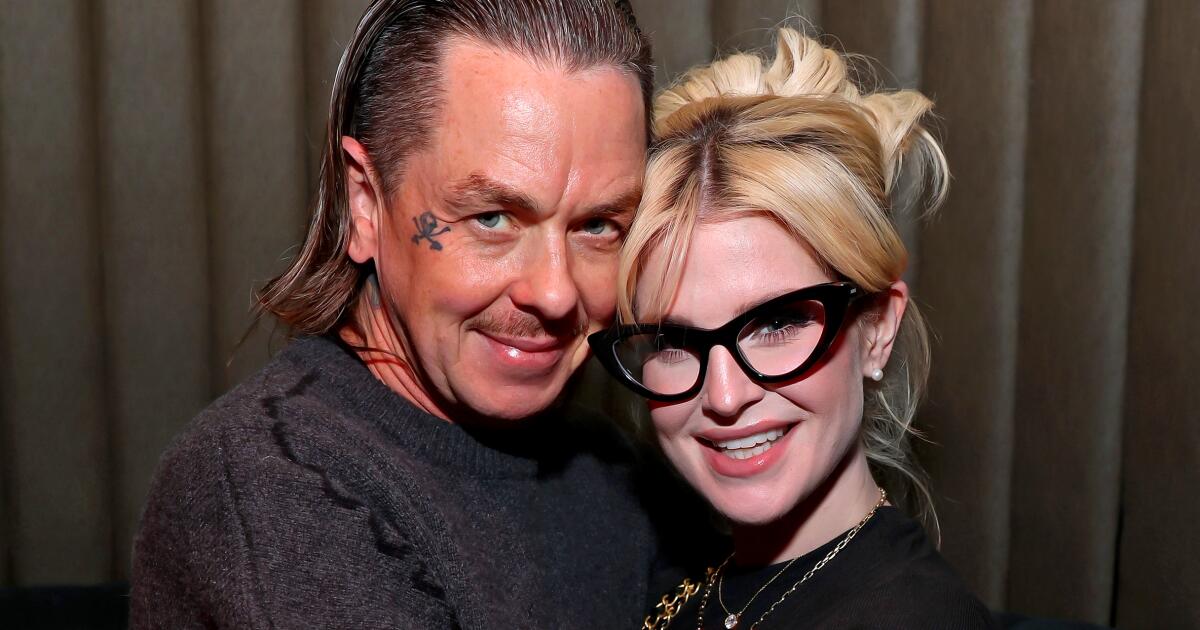Diego Boneta on his book and TV series ‘Undoing of Alejandro Velasco’

On the Shelf
The Undoing of Alejandro Velasco
By Diego Boneta
Amazon Crossing: 284 pages, $17
If you buy books linked on our site, The Times may earn a commission from Bookshop.org, whose fees support independent bookstores.
The single most significant piece of career advice Diego Boneta ever received came from none other than Tom Cruise — and it wasn’t a tip about how to jump off airplanes.
“Tom Cruise told me, ‘Listen Diego, don’t just be an actor,’” Boneta, 34, recalls during a recent phone conversation. The two met while making the 2012 musical comedy “Rock of Ages.” For the then-burgeoning Mexican star, that film represented a turning point. He remains grateful that the movie icon took the time to mentor him when he was trying to break into Hollywood.
It’s not that Boneta had any trouble diversifying his skill set before. He had already acted in plenty of soap operas in Mexico and released two pop albums as a singer prior to trying his luck in the English-speaking market. But landing roles in American productions as a Mexican actor proved uniquely challenging.
“In this business you have very little control of any outcome, and it’s not a meritocracy,” Boneta says. “As an actor you’re stuck with what’s being cast. Tom’s point was for me to try to create my own stories.”
And that he’s done. Through Three Amigos, the production company he established with his manager and friend Josh Glick in 2017, Boneta developed, produced and starred in Netflix’s “Luis Miguel: The Series” about the famed singer.

His debut novel, “The Undoing of Alejandro Velasco,” a contemporary mystery set amid the Mexican upper crust in the picturesque town of San Miguel de Allende, is out Thursday via Amazon Crossing.
The tome evolved from what Boneta originally envisioned as a screenplay inspired by some of the roles he had auditioned for and lost. Around that time, his sister, Natalia González Boneta, joined Three Amigos and made a radical suggestion.
“She was like, ‘Instead of writing a script, why don’t you try to write a novel?’ I thought, ‘You’re out of your mind. I’m barely trying to write a script here,’” Boneta recalls laughing.
Their company already had an overall deal with Amazon, and its publishing and television arms both showed interest. For the last three years, Boneta and his partners have been simultaneously developing the novel and a limited series adaptation.
“As a production company, you hear all the time that you need [intellectual property],” he says. “And the idea was for us to create our own IP.” At this point he enlisted media and content development company Glasstown Entertainment to guide him through the process.
Boneta’s initial concept invoked stories about alluring usurpers such as the protagonists in Patricia Highsmith’s “The Talented Mr. Ripley” and the more recent black comedy “Saltburn.”
“In a bunch of these stories, the con man tends to be the more introverted, quiet, shy guy,” he says. “We’re like, ‘What if we flip this around and we have the con man here be like Jude Law, this bon vivant, outgoing guy. That was one of the first things that we thought of.”
From the onset, Boneta intended to play the lead role of the unnervingly magnetic Julian Villareal in the subsequent on-screen adaptation.
“I really wanted Julian to feel like a chameleon because, as an actor, it’s just so much fun to play characters who are contradicting and complex,” he says.
The titular Alejandro Velasco is dead by suicide before the story begins. The novel follows Julian as he visits the wealthy Velasco family in San Miguel de Allende with ulterior motives to slowly infiltrate their manicured lives.
“Mexico has a kind of oligarchy, and these families, they care so much about their appearance in society,” Boneta says. “That’s something I’ve never really seen anywhere else in the world. And it’s hard to explain unless you go to Mexico and you live it.”
Details about Alejandro’s friendship with Julian, both Mexican students in the United States with a shared passion for tennis, will eventually come into the foreground. Along the way, Julian must confront an opposing force: Alejandro’s astute sister, Sofia, a compelling character that Boneta says his own sister helped him create.
For Boneta, who grew up bilingual — the son of a Mexican father and an American-born mother — straddling the nuances of both cultures and languages came naturally. He recorded the audiobook version of the novel in English and Spanish.
On every level, the novel reflects aspects of Boneta’s life. He grew up visiting relatives in San Miguel de Allende — a town now heavily gentrified by American immigrants — wishing to one day film a project on its cobblestone streets. Boneta refers to it as “the Florence of Mexico.”
As for tennis, Boneta believes he wouldn’t be here if it weren’t for the sport. His father played throughout college and received a scholarship to attend Texas A&M University, where he met Boneta’s mother at engineering school. Boneta has also played over the years.
“It’s both a mental sport and a cinematic sport,” he says. “I really wanted to have it be woven into the story in a very metaphoric way, where how these characters play tennis, their technique, tells you who they are.”
Facing the blank page perturbed Boneta at the beginning of his first foray into long-form writing, so he asked his writer friends for advice. The collective recommendation was to not rush the outline, to focus on having a solid foundation for the structure and characters.
“We spent a lot of time on that part of the process,” Boneta says. “And it was incredible, once we really had that down, the writing came — I’m not going to say easier — but in a more organic way.”
Deeper into the parallel crafting of the novel and the limited series, Boneta also received input from one of his favorite filmmakers, Alfonso Cuarón, who recently adapted Renée Knight’s novel “Disclaimer” as a limited series for Apple TV+.
“A piece of advice that Alfonso gave me that really helped was, ‘Diego, have each format be its best version for that format. It’s going to be impossible for the show to be exactly like the book, nor should you try to make it,’” Boneta recalls. “‘You have to be open to how maybe some things change in the TV show version because it’s a different format.’”
Boneta sourcing solutions to professional obstacles from industry veterans he admires evinces a willingness to admit that he’s learning as he goes. One step at a time.
“I’m not going to sit here and call myself an author,” Boneta says with detectable sincerity. “This is my first book, and it’s something that I put a lot of work and heart into. But I’m a storyteller, man, and I realized that the only way I was going to be able to play my dream roles was by creating my dream projects.”
Asked if there’s more writing in his future, Boneta enthusiastically suggests he’s willing.
“We’ve been approached already about a sequel, and I’m like, ‘What? The book hasn’t even come out yet,’” Boneta says with a chuckle about his prospects as an author.





